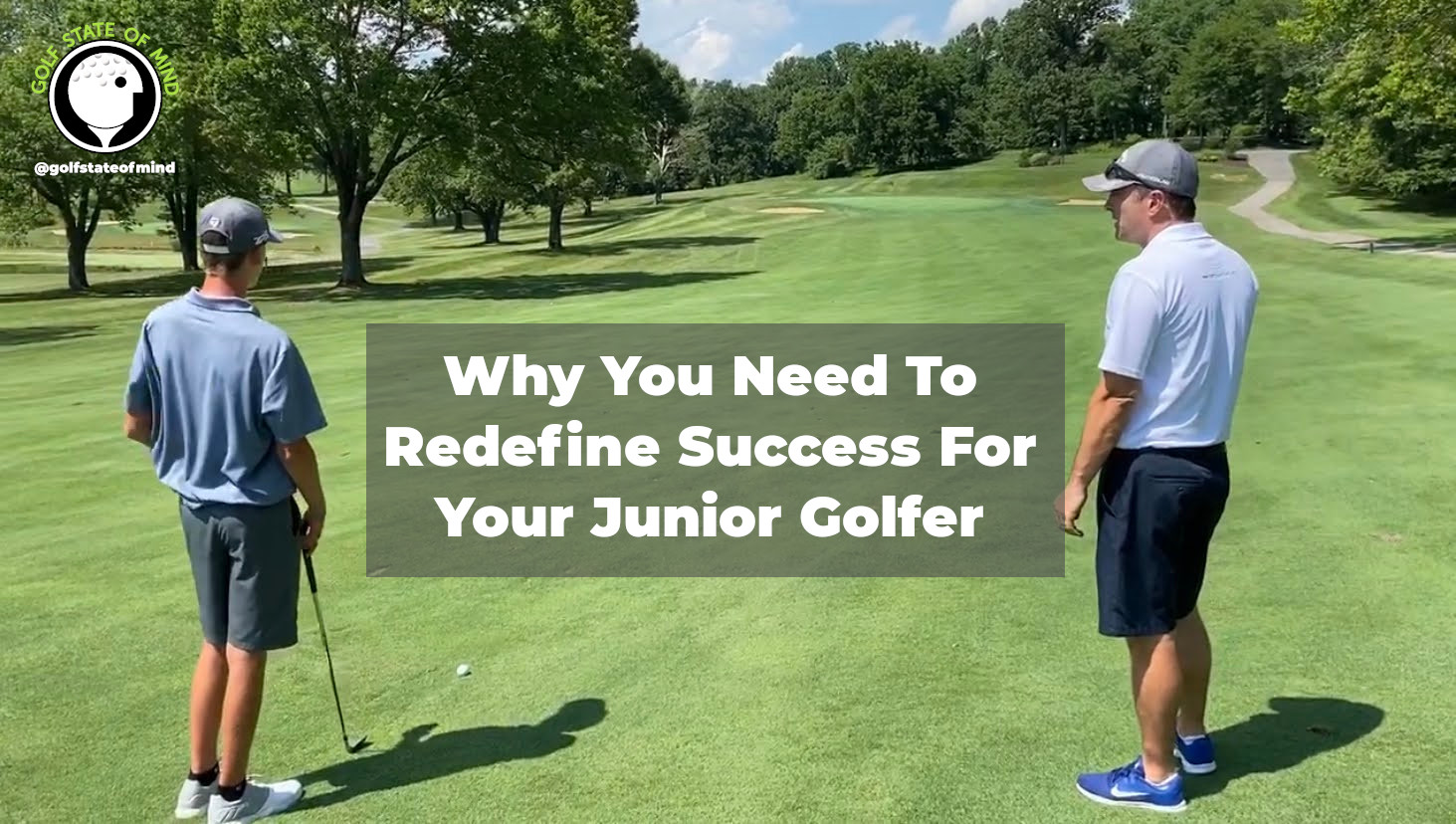
Why You Need To Redefine Success For Your Junior Golfer
“Success is peace of mind, which is a direct result of self-satisfaction in knowing you did your best to become the best that you are capable of becoming.” – John Wooden, UCLA Basketball Coach
Over the years that I’ve been coaching the mental game of golf to all levels of golfer, I’ve concluded that one of the biggest factors in a junior golfer’s long-term development is how their parents and coaches define their success.
For most golfers (and athletes in general), the measure of success is simple – it’s the end result, their score, place in the tournament, and for some, how others perceive them. Vince Lombardi summed this perspective up best with his famous line: “Winning isn’t everything; it’s the only thing”.
But is this really the best way to measure success to improve long-term performance and what we should teach our kids?
Our junior golfers are constantly seeking our approval and trying to impress us. They are heavily influenced and shaped by what they hear from us and how we respond to them.
If we allow them to think that their score is what defines their success, we:
- Place greater weight on the outcome of shots, which adds pressure
- Create disappointment and frustration when outcomes are not achieved
- Make them afraid to make mistakes, increasing performance anxiety
- Make is harder for them to stay present and place attention on what they are doing now
- Lose a valuable learning opportunity
- Make them strive for a future outcome, rather than being patient and content in the present moment
I see too many parents of junior golfers making this mistake. This perspective, more often than not, leads to disappointment and underperformance, creates a wedge between parent and junior and can lead to juniors losing interest in the game.
Redefining success for high performance and learning
John Wooden also told us that:
“It’s not about winning. It’s about learning to give all we have to give.”
To help your junior golfer develop the mental skills to become their best and to nurture their love of the game, success has to be redefined.
When I review a round with any player, I don’t ask them what they scored or where they finished. I know that their long-term success is about developing high performance habits over time and reflecting on whether they are being the best versions of themselves in their rounds and in practice. That is the real meaning of success. I’m not saying that you ignore the external feedback that we get from scores and stats, this is obviously an important part of the game improvement process and helping a player allocate time to developing their physical skills.
However, in practice and rounds I believe that success should be measured by the following:
Attitude. Did you give 100% until the end or did you give up?
Enthusiasm and Gratitude. Did you love and appreciate the game whether it was going well or not?
Optimism and Mental Toughness. Did you embrace the challenges and believe you could get through them?
Discipline and Focus on Shot Routines. Did you do everything you intended to do to hit each shot as best you could?
Awareness of your thinking and self-talk. Without awareness we are powerless to our thoughts. Did you use self-talk proactively or reactively?
Self control. Did you respond well to poor outcomes/negative thoughts and emotions and stay calm and composed?
Humility. Did you do a good job of not comparing your game to others?
Work ethic. Did you put 100% effort into your process on the course and in practice?
By rewarding the achievement of these “intrinsic” goals, we shift focus away from the uncertainty of score to what the player has in their control and make external goals (scores, wins, etc.) more attainable.
My mental scorecard, or “internal” scorecard, is the measure of success for my students (you can download the template at the bottom of the page). It’s very simple, a player sets (and shares) clear intentions for their “process” and what they value as success, and they are held accountable to it. With continued practice of setting intentions => having awareness => doing reflection, junior golfers will learn how to “give all they have to give”, accept any outcome and play with more freedom.
Mastering Ourselves From Mastering Our Craft
As I always say, the value of the game of golf goes way deeper than score. The greatest value for junior golfers is what they learn about becoming better people and living better lives. If they can develop these skills playing the game they love then it’s a win-win whatever score they shoot. With this sort of reinforcement, we not only set them on the path to mastering the game of golf but mastering themselves.
Working with a junior golfer on the mental game gives me a great sense of purpose knowing that what I am teaching them will help them perform better in all aspects of life. If you’re interested in how I can help your junior golfer improve their mental game, please click here for a free consultation.


